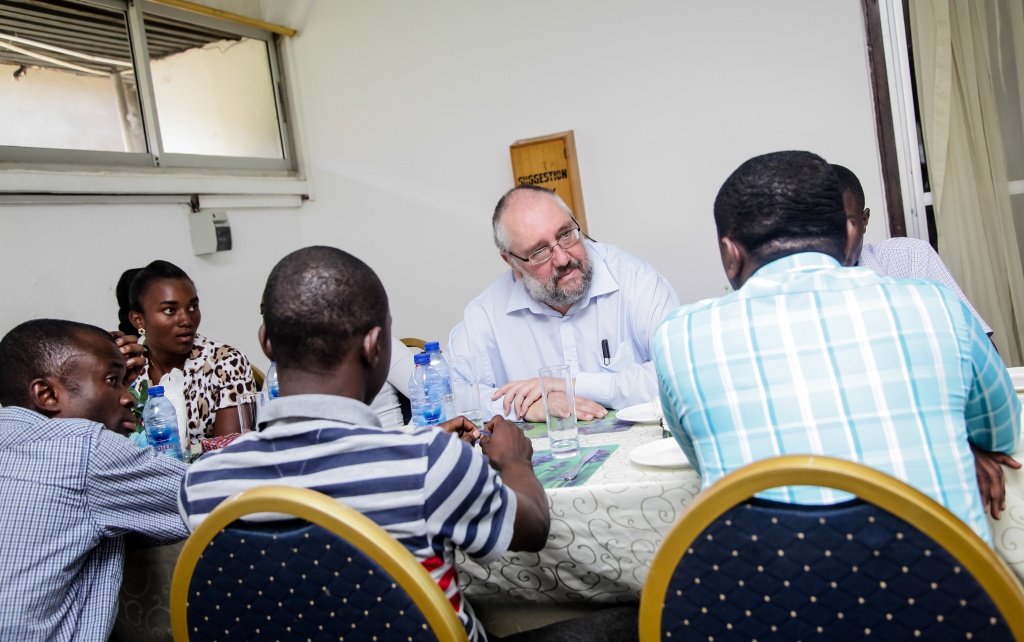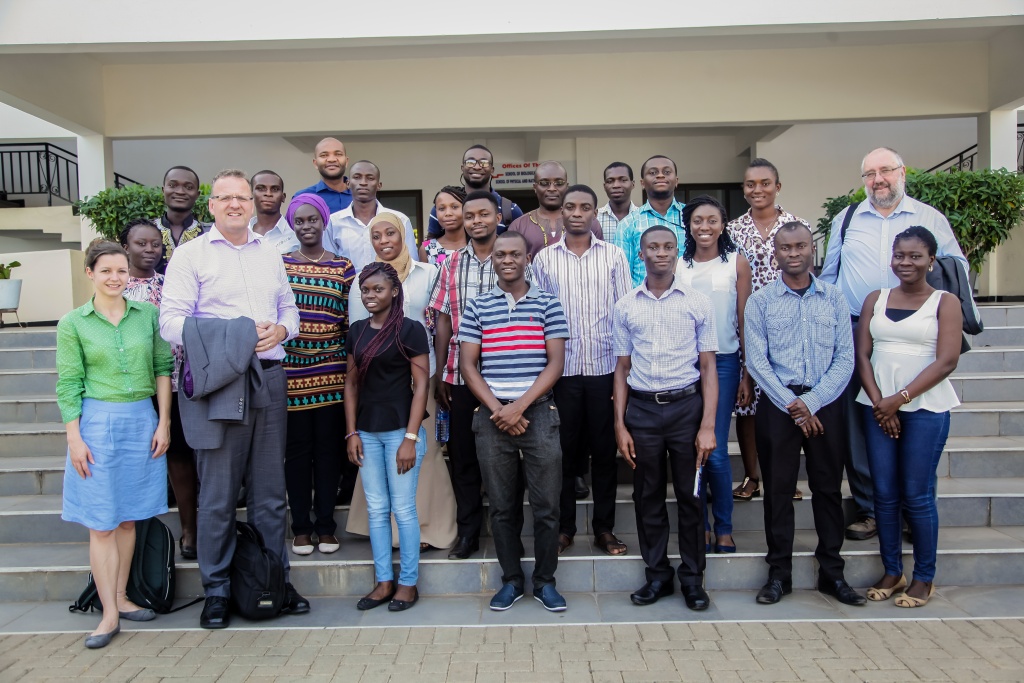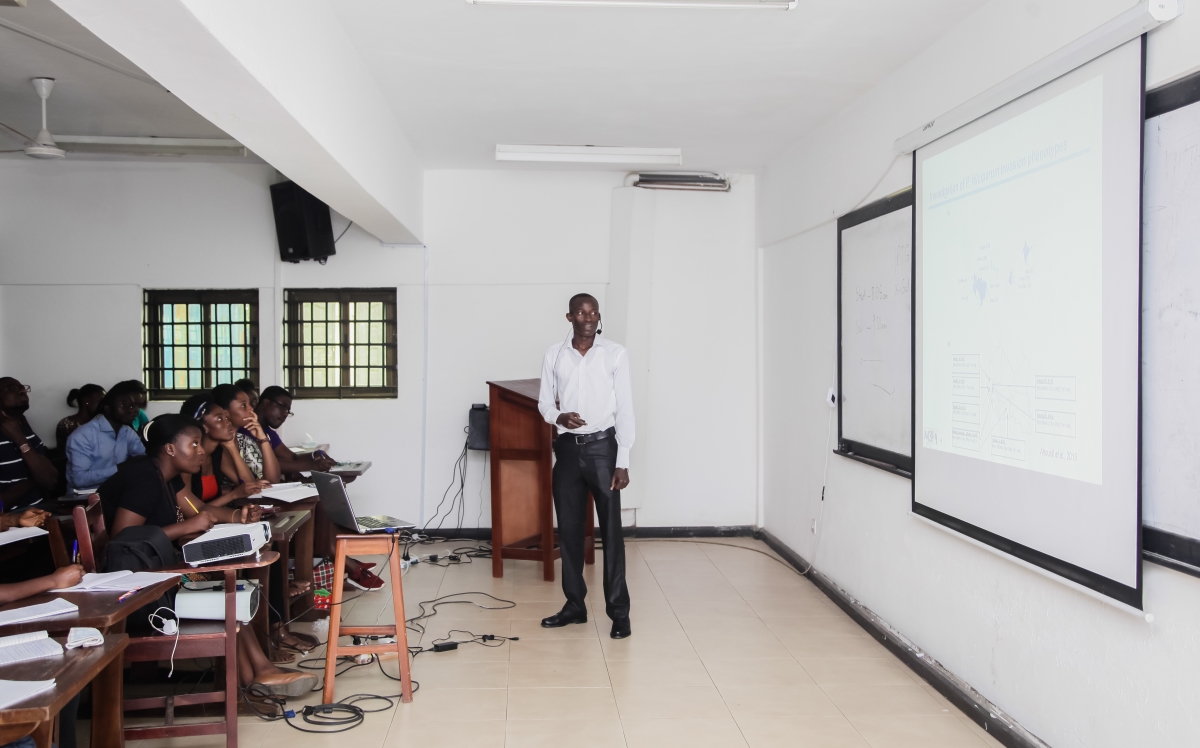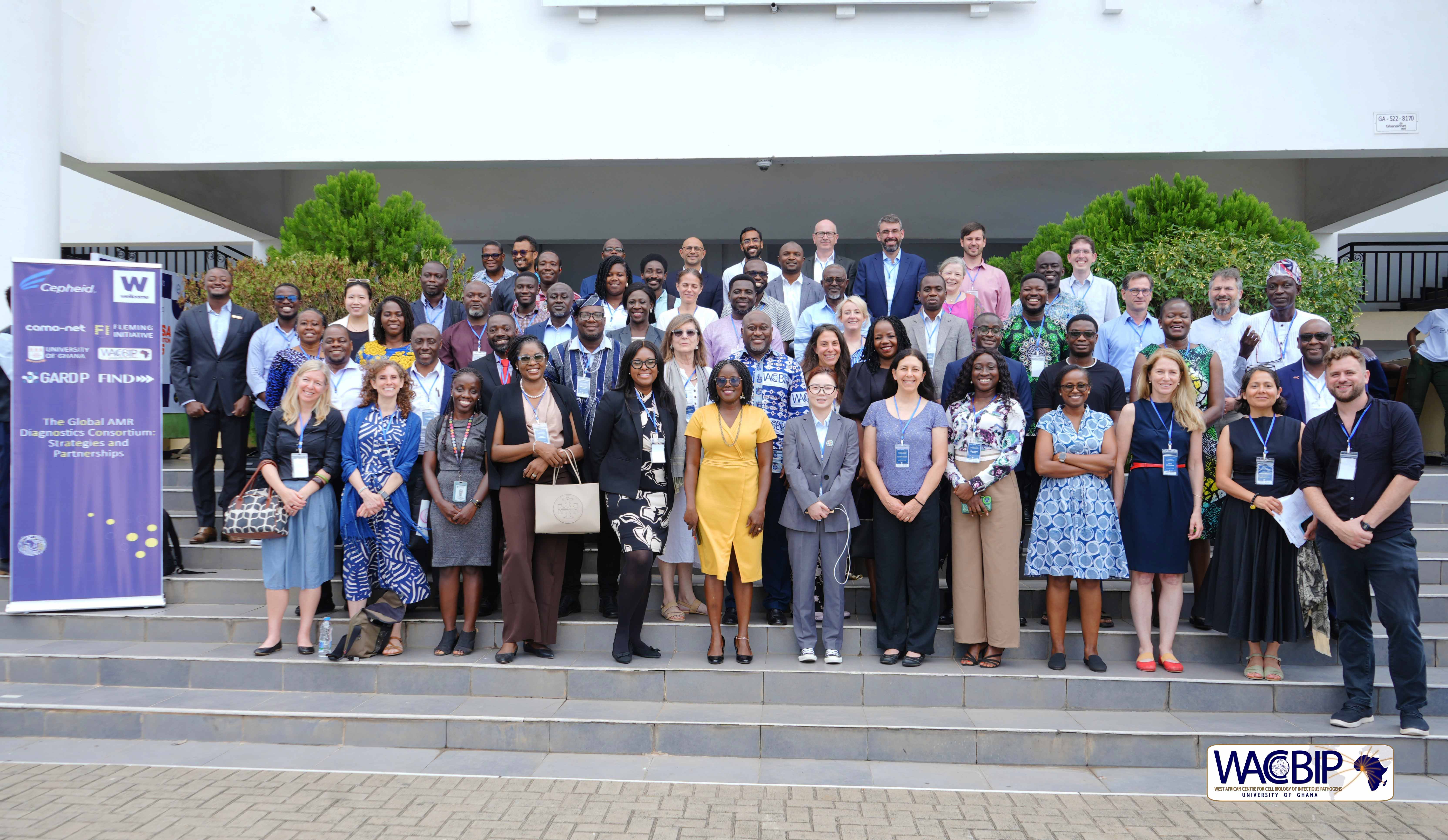In their interaction with students across all years of the various programmes, they observed an engaged group with the requisite skills and knowledge to take up key positions in the biosciences. A tour of the center's facilities was organized for the assessors to enable them experience all the center has to offer. In the course of the tour they witnessed the labs in use and observed students carrying out some hands-on work to identify areas of good practice.

This site visit marks the second stage of the process of obtaining Royal Society of Biology International Advanced Accreditation, a process which began in April 2016, and has involved the submission of many documents. Thus the aim of the RSB team site visit was to further evaluate WACCBIP's programmes and facilities and have face-to-face discussions with staff and students of the various programmes. Indeed, this constitutes a key milestone in a crucial objective of WACCBIP which is to obtain international accreditation for 2 of its newly designed and introduced programmes namely the PhD and MPhil in Molecular Cell Biology of Infectious Diseases. Once this international accreditation process is successfully completed, these programmes will be the first of its kind in Africa with Royal Society accreditation.

Some students of WACCBIP with visiting team
The Royal Society of Biology is a single unified voice for biology: advising the Government of the United Kingdom and influencing policy; advancing education and professional development; supporting its members, and engaging and encouraging public interest in the life sciences. The Society represents a diverse membership of individuals, learned societies and other organisations. Individual members include practising scientists and non-professionals with an interest in biology.
The WACCBIP team was thrilled to receive the visiting delegation from the Royal Society of Biology and looks forward to finalizing the process in the weeks to come. With this accreditation, these two WACCBIP programmes will have achieved the requisite recognition in academic excellence in training future leaders in research and development. This will also foster the sharing of best practice across the sector, increase international competitiveness and drive up the standard of graduates in the biosciences in the West Africa sub-region.













